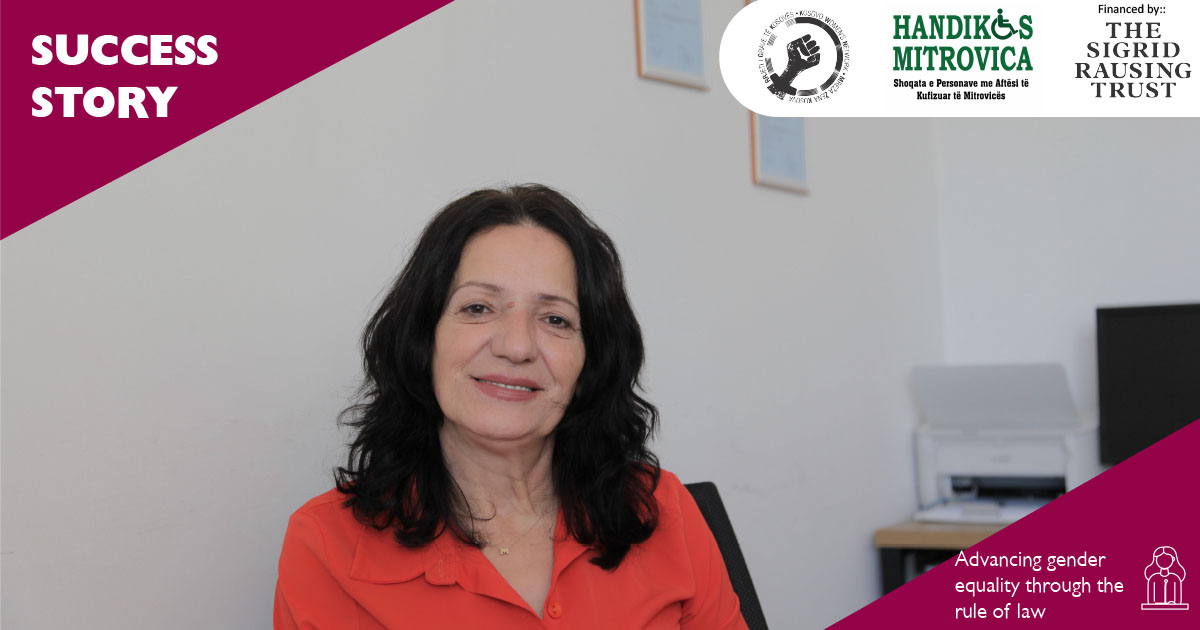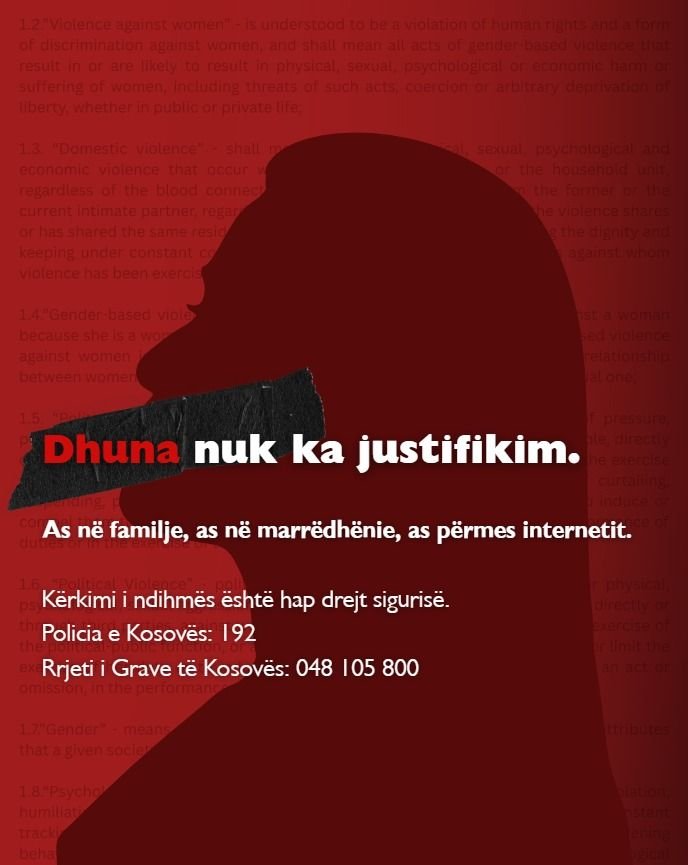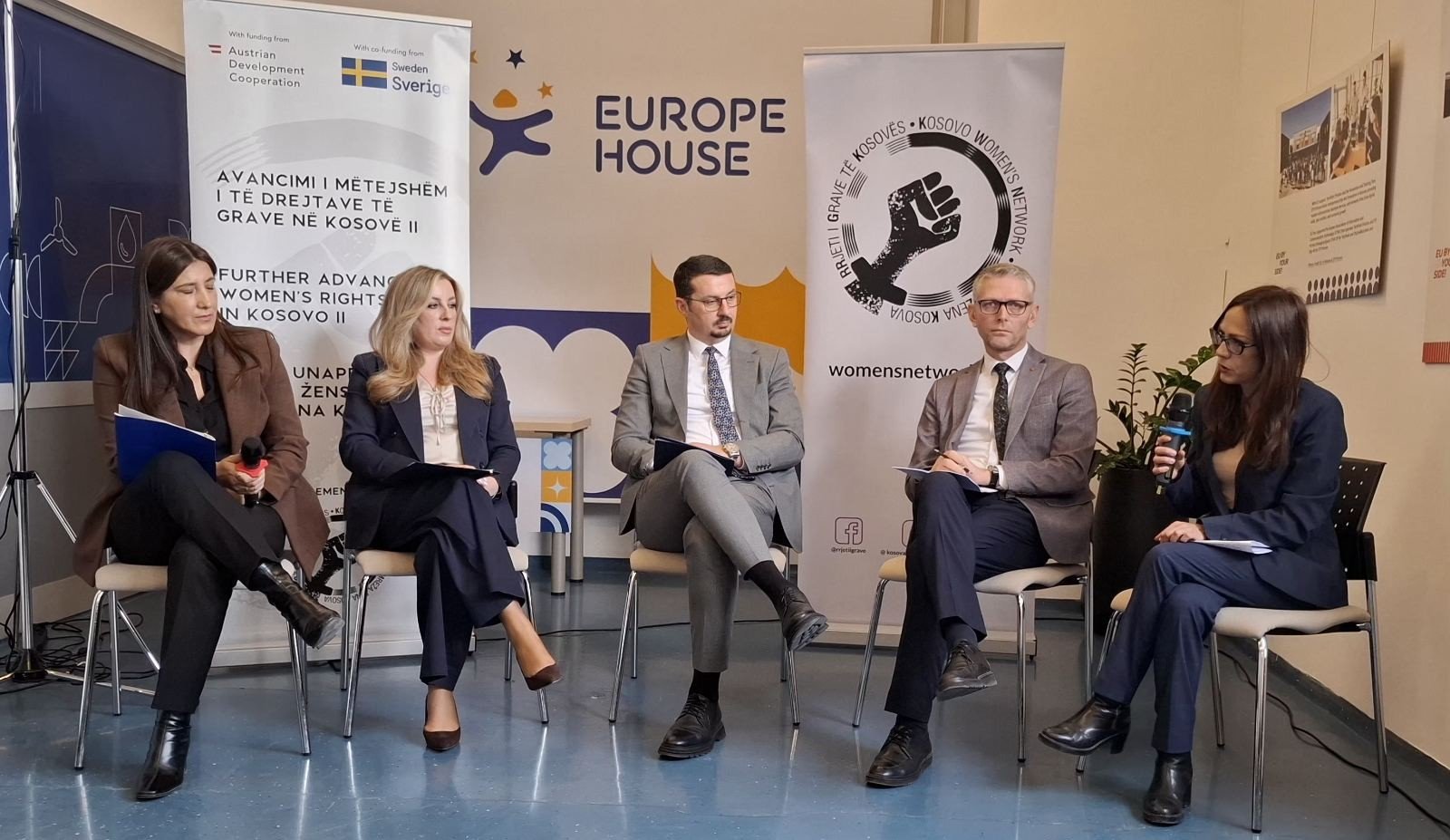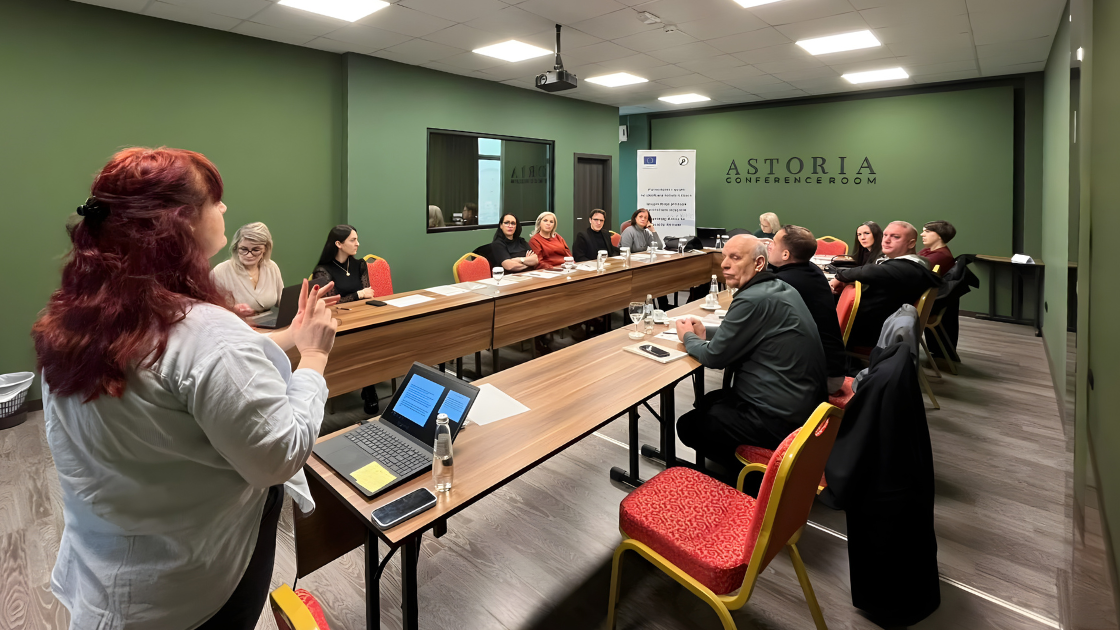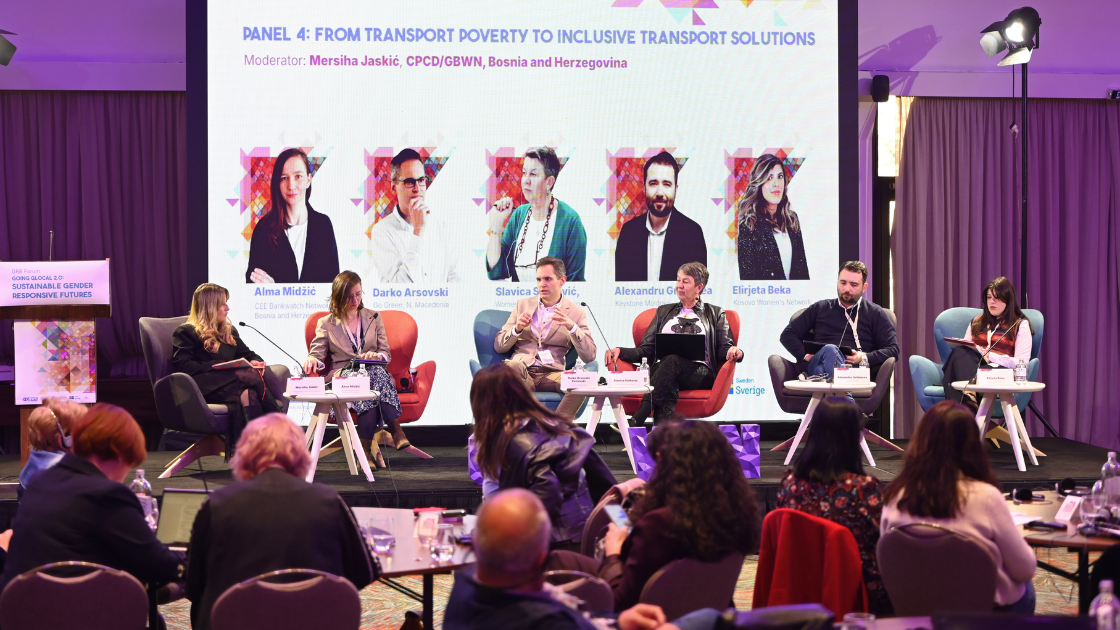Handikos Mitrovica is an organization dedicated to working with and advocating for people with disabilities, striving to ensure their inclusion in an equitable and active role within society. Its mission is to identify, support, and empower these individuals through education, employment, and initiatives that promote equality and dignity.
One of the organization’s main goals is to identify and reach individuals with disabilities in villages or other areas. “Often, individuals with disabilities were hidden, and their families did not disclose their situations. That’s why we focus on identifying and discovering them, as well as meeting their needs by providing essential orthopedic and sanitary equipment,” says Myrvete Hasani, director of Handikos Mitrovica.
For people with disabilities, leading a normal life can be challenging, particularly in practical areas such as transportation and access to health services. These factors often create significant obstacles, including ordinary buildings and roads, education, and daily outings. In addition to these challenges, people with disabilities also face societal acceptance issues, which can exacerbate their situation. Women with disabilities experience even greater discrimination, being frequently more disadvantaged.
According to Myrvete from Handikos Mitrovica, our society has made progress, and the situation today is not as it used to be. Positive steps have been taken in the areas of education and employment for people with disabilities, but access to certain services and spaces remains an unresolved issue.
There are also laws in place to support people with disabilities, and younger generations with disabilities experience these differently.
An important achievement is the improvement of conditions at the Family Medicine Center (FMC) in Mitrovica, where an elevator has been installed to facilitate access for people with disabilities. For the first time, these individuals, particularly women, can now attend medical appointments independently.
Another example of success is the relocation of the Center for Social Work to the first floor of the building, following a lawsuit filed by a Handikos member regarding the lack of accessibility. With the support of the organization, this change has created improved conditions for the services provided to people with disabilities.
These changes may also occur in other municipal buildings, including the installation of elevators or other modifications to the buildings, to provide easier access for people with disabilities.
Last year’s initiative, ‘Empowering Women and Girls with Disabilities: A Comprehensive Approach to Reproductive Health,’ was highly functional and very well-received by women with disabilities.
According to Myrvete Hasani, women with disabilities very rarely undergo gynecological visits due to a lack of appropriate conditions, and this topic is considered taboo within their families. “You are not married,” “you have not had intercourse,” “you have no reason to go”—she quotes words from family members and relatives of these women,” she says.
Through trainings organized by Handikos Mitrovica, trainers and doctors have been engaged to provide gynecological visits and advice to women and girls with disabilities. These visits have also been conducted at the Main Family Medicine Center (MFMC) to improve the situation and conditions for receiving services. One of the main achievements has been the installation of an elevator within the MFMC, which has enabled women with disabilities to attend their appointments independently.
Many women reported that they were not well-received by medical staff in the past, but now, according to Myrvete, there has been a noticeable 50% improvement.
“When women with disabilities visit the doctor, the doctors often don’t speak directly to them. Instead, they address the person who accompanied them, assuming the woman doesn’t know how to speak,” explains Myrvete, describing the common experiences shared by these women with Handikos.
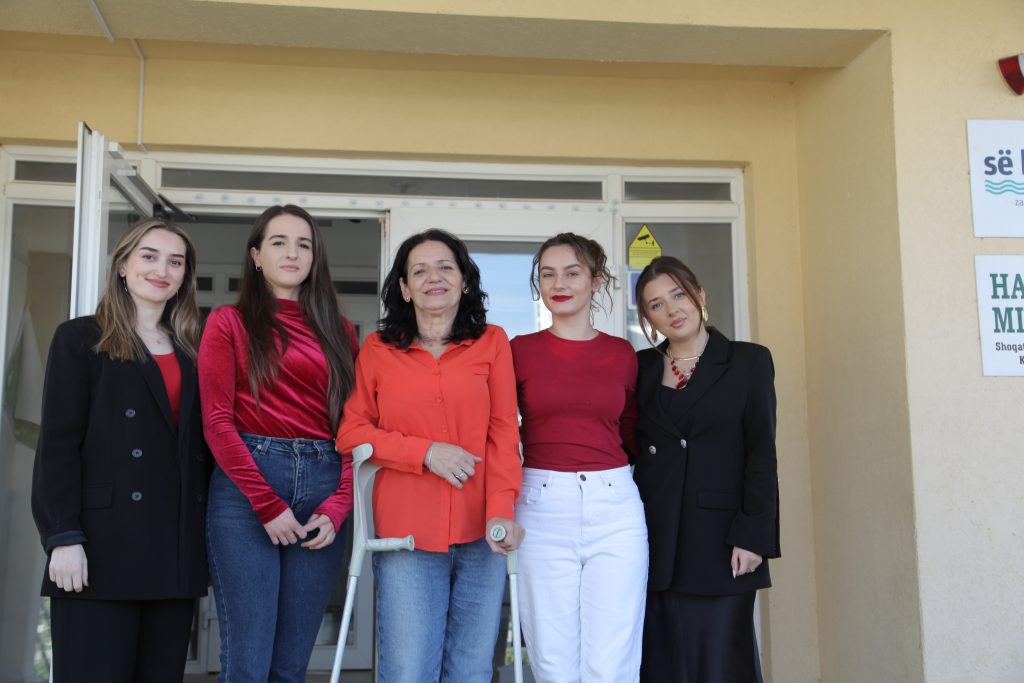
She also points to the inappropriate behaviour of staff who discussed the experiences of people with disabilities with the accompanying person rather than directly with them. As a result, Handikos sees the need to conduct training with the MFMC staff in the future, focusing on how to approach and communicate with people with disabilities.
Various activities have contributed to changing attitudes towards persons with disabilities within families. As part of this initiative, medical staff have also made visits to rural areas for women and other individuals with disabilities.
This initiative was supported by the Kosovo Women’s Fund with a €10,000.00 grant, funded by the Sigrid Rausing Trust (SRT).

